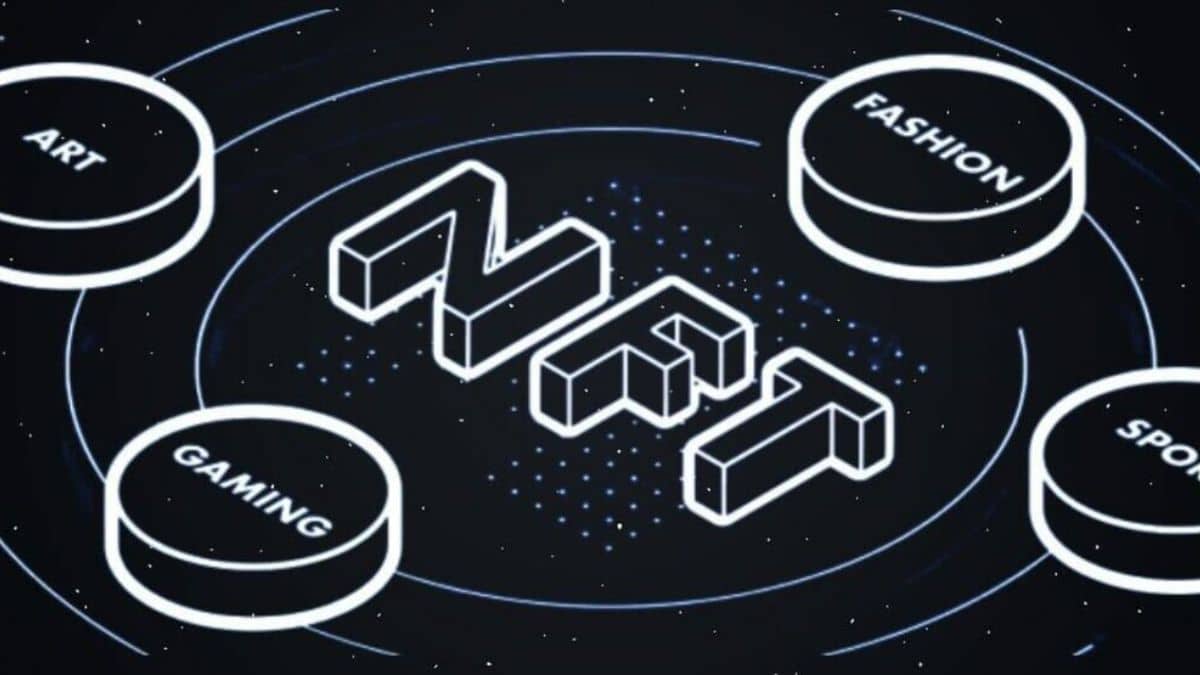NFTs Claw Back After a Brutal Crypto Winter; Here’s Everything You Need To Know
After a catastrophic meltdown of the entire digital assets industry in 2022, cryptos are slowly recovering lost ground. Amid the recovering market, non-fungible tokens (NFT) use cases have made a tremendous upturn. Are NFTs making a comeback? NFT Industry Is In a Recovery Mode In 2022, the cryptocurrency industry witnessed one of the worst years. ... Read more

After a catastrophic meltdown of the entire digital assets industry in 2022, cryptos are slowly recovering lost ground. Amid the recovering market, non-fungible tokens (NFT) use cases have made a tremendous upturn. Are NFTs making a comeback?
NFT Industry Is In a Recovery Mode
In 2022, the cryptocurrency industry witnessed one of the worst years. Macroeconomic headwinds such as stubborn inflation, rising interest rates to tame inflation together with geo-political calamities battered the crypto market and the broader traditional market, alike. Bitcoin (BTC), Ethereum (ETH) along with most of the top crypto assets plunged to unexpected lows.
Numerous high profile crypto companies experienced severe liquidity crisis resorting to either bankruptcy or mass layoff. In the wake of such financial predicament, crypto sub-ecosystems like Web3, decentralized finance (DeFi), NFTs also took a hit. However, things started to get better since the onset of the New Year.
In company with crypto, the NFT market is trotting back on its feet with trading volumes up for the two consecutive months. NFT trading volume recorded a whopping 117% increase from January to February, reaching $2 billion for the first time since May 2022.
The top NFT marketplaces – Magic Eden, OpenSea, Blur, X2Y2, CryptoPunks and LooksRare saw a rise in wash trading for the fourth straight month, with a total volume of $580 million. “Wash trading” refers to the manipulation of trading volume or price through repeated transactions.
Use Cases Fire Up
Recently, Argentinian low-cost airline “Flybondi” integrated Web3 into its ticketing process by issuing e-tickets as NFTs. Dubbed as “Ticket 3.0”, it is an expansion of its existing relationship with NFT ticketing company TravelX. This technology, which is built on the Algorand blockchain, allows passengers to change their name, transfer or sell their “NFTickets” independently.
Prepare for takeoff
We're thrilled to see @flybondioficial tokenize their inventory with @travelx__ to create the world's first secondary market for airline tickets!@algorand is built for large-scale applications & real-world solutions.
Learn more
https://t.co/BZwXj0O3Yp
— Ⱥlgorand Foundation (@AlgoFoundation) March 30, 2023
On March 27, one of the leading providers of event ticketing services, Ticketmaster, launched “token-gated sales,” allowing fans access to concert tickets using NFT technology. The first to use the service was the American heavy metal band Avenged Sevenfold (A7X), whose “Deathbats Club” NFT collection gave owners early access to the group’s shows in New York City and Los Angeles.
Beyond large-scale efforts, independent musicians and artists have also been finding ways to implement NFT ticketing into their tours and shows. Not just the travel and entertainment industry, but, many other sectors have also integrated NFTs into their business strategies.
Ticketmaster is launching token-gated ticket purchases, starting with Avenged Sevenfold.
If you hold the artist’s NFT, you get first access to tickets.
— musicben.eth
(@musicben_eth) March 27, 2023
A number of tokenized real estate initiatives have started to take shape in the recent few months. On March 29, Homebase, a real estate investor bought a home for $246,800 by tokenizing the residence on Solana (SOL) via a smart contract tied to an NFT.
NFTs Impact Global Industries
NFTs are also used by government agencies to indict certain individuals. Earlier this month, The Russian government cited an NFT as evidence for criminal charges against artist and activist Nadya Tolokonnikova, better known as the face and voice of Russian feminist protest and performance art group Pussy Riot relating to “hurting the religious feelings” of the people of the country.
From luxury fashion houses to liquor companies filing for NFT trademark applications has surged since the beginning of this year. On January 18, Irish Distillers International, makers of Jameson Irish whiskey, was the latest liquor company to file for an NFT trademark application. Several high end automobile giants have also racked up on NFT patents over the recent few months.
Irish Distillers Int’l has filed a trademark for #JAMESON #whiskey claiming plans for
Virtual clothing, footwear, alcoholic drinks
NFT trading software
Stores for virtual goods + NFTs
NFT trading marketplaces
Virtual bars + restaurants#NFTs #Metaverse #Web3 pic.twitter.com/7dhHZrXh2S
— Mike Kondoudis (@KondoudisLaw) January 23, 2023
Experts Weigh In

According to experts tracking this class, the meteoric surge is attributable to several factors. In a statement, Kameshwaran Elangovan, Co-founder and COO at GuardianLink explained,
“The first is that people have started to understand the line of demarcation between NFTs and cryptocurrencies. The other is that the NFT market has matured a lot, creating more metaverses with stories and NFTs with utility rather than confining themselves to simple images.”
Meanwhile, Vikram R Singh, Founder and CEO at Antier said NFTs are quickly becoming a prominent music industry sector, with many artists launching NFT and blockchain endeavors to bolster their fanbases. He noted,
“The rise in trading volumes of NFTs in the last two months can be attributed to the increased demand for digital assets, such as art, music, and videos. This has been in response to the digital transformation that has taken place in the entertainment industry, as well as the increasing popularity of blockchain technology.”








